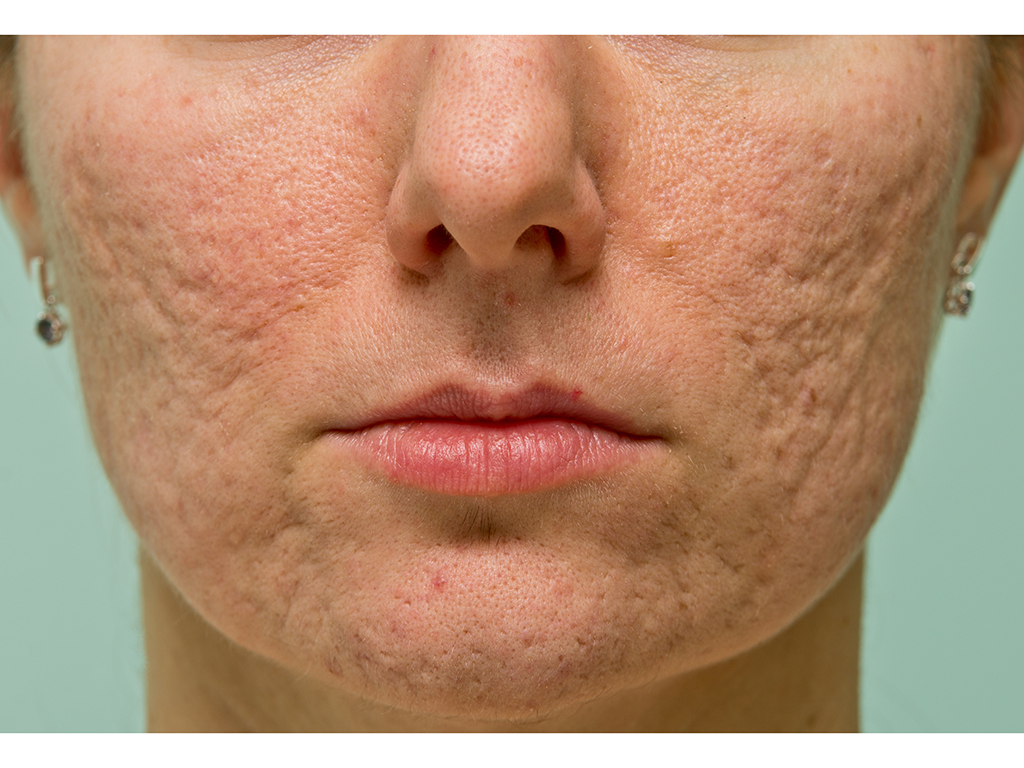As if getting acne wasn’t bad enough, sometimes it can cause the skin to scar, leaving behind a long-lasting reminder of a troubling condition. Fortunately, it’s not necessarily an irreversible issue.

“Acne scars are due to either untreated acne or severe acne,” says Dr. Paul Cohen, a dermatologist and owner of Rosedale Dermatology Centre in Toronto. “They form when inflammation in the skin causes a change in the collagen.”
WATCH BELOW: Acne and rosacea treatment
There are two types of acne scars: temporary red or brown marks known as hyperpigmentation, and more aggressive ones that cause a change in the surface of the skin. The former scars are more often seen on darker skin tones, while the latter can appear on all types of skin.
How to treat acne scars

Get weekly health news
Cohen says the first line of treatment is always prevention, especially for those with darker skin tones, since they tend to be more prone to them.
However, if the scars have formed despite all efforts to prevent them, he says there are a number of different treatments ranging from topical creams to more invasive procedures.
“People with skin that has a fine surface texture or who have hyperpigmentation can start with a prescription retinol cream, which is a vitamin A derivative. Over time, it will stimulate collagen growth which can help with pigmentation scars.”
Gentle in-office treatments like chemical peels or microdermabrasion can also help to diminish the appearance of mild scarring.
READ MORE: Vaginal pimples and other odd places you can get acne — here’s what to do
For those with deeper scars (the ones that resemble divots or enlarged pores), Cohen says subcision can help. This is a minor surgical procedure where a bit of the skin is cut down under the scar in order to break the fibre strands that are tethering the scar down. He says that hyaluronic fillers, like Juvederm or Restylane (which are typically used to fill wrinkles), can also be injected under the scar to temporarily push the skin back up and decrease its appearance.
If none of those options works, he says there are also more intense laser resurfacing procedures, like Fraxel, that create deep wounds in the skin to stimulate the body to create more collagen and minimize the appearance of scars.
“You’ll definitely see more results from this treatment, but there’s also more downtime,” he says.
As with all things beauty and skin-related, there are a number of at-home options, but their efficacy is considerably less than anything you can have done in your dermatologist’s office.
READ MORE: Adult acne is common — here’s how to deal with pesky pimples
Cohen points to tools like a derma-roller, a handheld device that has a cylindrical head embedded with tiny needles that you can roll over your skin. It mimics in-office micro-needling and much like the idea of a laser resurfacing treatment, it creates small wounds with the intention of boosting collagen production.
He says a tool of this nature might help accelerate mild acne scars but to be careful if you’re using it in conjunction with a prescription cream as it could irritate your skin. If anything, he says, it has the greatest chance of working on hyperpigmentation because it could help creams to penetrate the skin better.
“If you want to do something that’s effective, it has to have a strong enough concentration and that has to be supervised by a doctor,” Cohen says.
“At the end of the day, the real take-home is prevention: don’t pick at pimples, don’t leave aggressive acne untreated and see your doctor if you’re getting acne that’s leaving marks on your skin.”






Comments